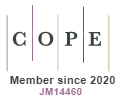Evaluation in rural family houses
a case study
DOI:
https://doi.org/10.5585/46.2023.24229Keywords:
evaluation, pedagogy of alternation, rural educationAbstract
In this paper, we investigate the evaluation process in a Rural Family House based on the Pedagogy of Alternation. Through a case study, in Stake’s conception (1995), we conducted a qualitative research by analyzing the Political-Pedagogical Project and conducting interviews with educators and students from a school located in northwest of Rio Grande do Sul. The interviews took place both during school time and community time, as groups of students were selected. Following Stake's approach, there is no separation between data production and analysis, which occurred concurrently during the interviews. Among the obtained results, we emphasize that students perceive evaluation as a necessary and dynamic process, involving not only educators and school collaborators but also their own families and community at large. The importance of a differentiated evaluative practice that meets the needs and specificities of rural individuals became evident, promoting the formation of participatory citizens.
Downloads
References
ABREU, M. C.; MASETTO, M. T. O professor Universitário em Aula: prática e princípios teóricos. São Paulo: MG Editores Associados, 1990.
CALDART, R. S. Educação do campo: Notas para uma análise de percurso. Trabalho, Educação e Saúde, v. 7, n. 1, p. 35-64, 2009. Disponível em: https://doi.org/10.1590/S1981-77462009000100003. Acesso em: 17 out. 2023.
FREIRE, P. Pedagogia do Oprimido. Rio de Janeiro: Paz e Terra, 1979.
FREIRE, P. Educação e mudança.12. ed. Rio de Janeiro: Paz e Terra, 1983.
FREIRE, P. Educação como Prática da Liberdade. 17. ed. Rio de Janeiro: Paz e Terra, 1986.
GIMONET, J. C. Praticar e compreender a Pedagogia da Alternância dos CEFFAs. Petrópolis: Vozes, 2007.
HAYDT, R. C. Avaliação no processo de ensino-aprendizagem. São Paulo: Ática, 1991.
HOFFMANN, J. Avaliação mito & desafio: uma perspectiva construtivista. Porto Alegre: Mediação, 2000.
HOFFMANN, J. Avaliar para promover: as setas do caminho. Porto Alegre: Mediação, 2008.
PROJETO POLÍTICO-PEDAGÓGICO. Escola de Ensino Médio Casa Familiar Rural Três Vendas, Catuípe, RS, 2007.
SAUL, A. M. Avaliação Emancipatória: desafios à teoria e prática de avaliação e reformulação política. Campinas: Autores Associados, 2000.
STAKE, R. E. The art of case study research. Thousand Oaks: SAGE Publications, 1995.
YAZAN, B. Três abordagens do método de estudo de caso em educação: Yin, Merriam e Stake. Meta Avaliação, v. 8, n. 22, p. 149-182, 2016. Disponível em: http://dx.doi.org/10.22347/2175-2753v8i22.1038. Acesso em: 17 out. 2023.
ZONTA, M. E.; TREVISAN, F.; HILLESHEIM, L. P. Pedagogia da alternância e agricultura familiar. Frederico Westphalen: URI/FW, 2010.
Downloads
Published
How to Cite
Issue
Section
License
Copyright (c) 2023 Dialogia

This work is licensed under a Creative Commons Attribution-NonCommercial-ShareAlike 4.0 International License.






